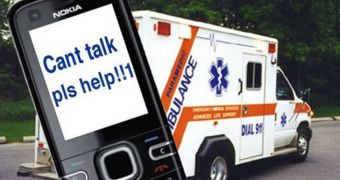The Text-to-911 service is now live in a series of selected areas across the United States, the Federal Communications Commission (FCC) announced on Thursday.
The service has been implemented to allow people to contact 911 dispatchers via text in order to notify of emergency situations rather than make a phone call.
According to The Register, the FCC is currently testing the program in a number of select locations – primarily rural areas – before rolling it out across all states and countries in the US. All four major U.S. carriers, Verizon, AT&T, Sprint and T-Mobile, have begun to offer text-to-911 in areas where call centers have been equipped to receive the SMS calls.
The initial rollout includes parts of the following states: Colorado, Georgia, Illinois, Indiana, Iowa, Maine, Maryland, Montana, New York, North Carolina, Ohio, Pennsylvania, South Carolina, Texas, Vermont and Virginia.
So far, full state rollouts have been introduced only in Maine and Iowa.
If consumers try to send text messages to 911 in areas where the service is not available, or call centers do not support this option yet, they will receive an automatic “bounce-back” message informing them the text has not been sent and advising them to make a voice call instead.
The program will make it easier to reach emergency call takers for people who are deaf, hard-of-hearing, have a speech impediment or are in a situation in which they simply cannot place a phone call.
However, even if today people text more often than call, the FCC advises against the excessive use of the new service, pointing out on its website that text messages should not be used as the primary way to contact emergency services, and that making a phone call is still the best option when possible because it allows people who are in trouble to transmit more details about the emergency in a shorter amount of time.
Users of the text-to-911 service should also keep in mind that first responders are not able to determine their location if they contact them via text, so besides information about the emergency, they should always provide their exact location.
The FCC has plans to roll out the program nationwide by the end of the year.
All in all, the major purpose of this new system is to improve emergency services for people with hearing and/or speech impairment and for those who are otherwise unable to place a voice call.

 14 DAY TRIAL //
14 DAY TRIAL //